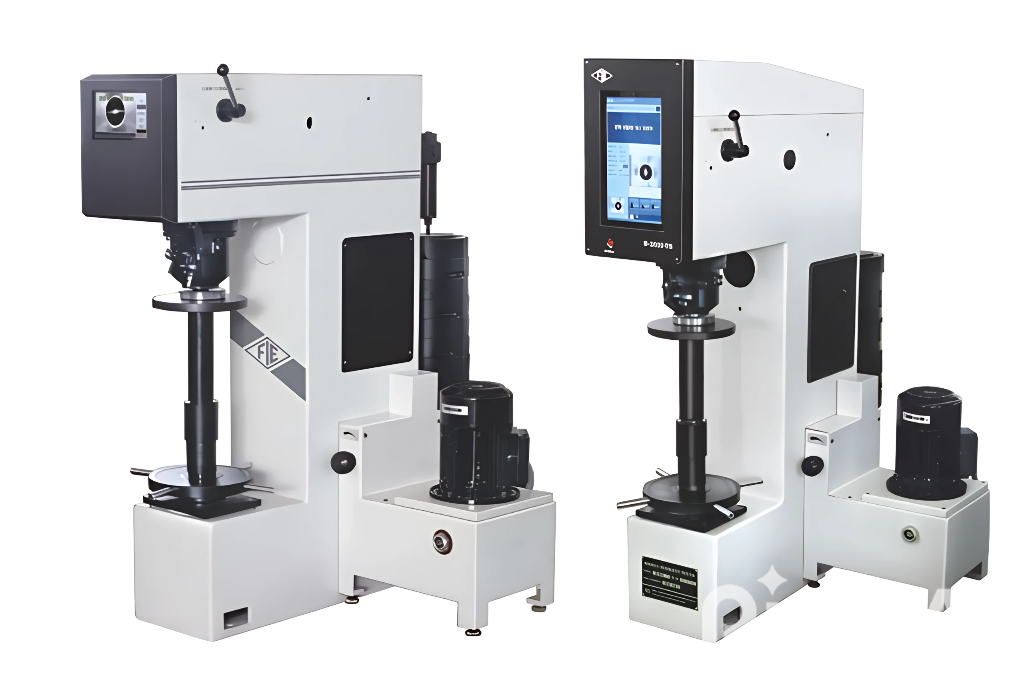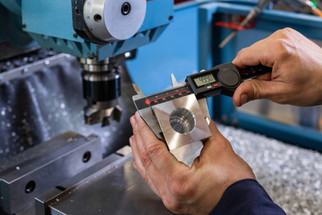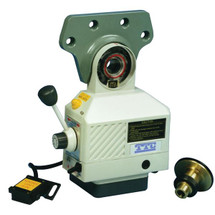What Are the Types of Hardness Testers?
What Are the Types of Hardness Testers?
Precise measuring tools are critical for industrial and commercial metalworking operations. Otherwise, you risk inconsistency in the quality of your products.
Hardness testers are one of those essential tools. They enable you to determine the durability, strength, and toughness of your materials.
There are several types of hardness testers available to you, each with its unique features and applications. In this article, the precision measurement experts at Penn Tool Co. describe the seven most common types of tools used for metal hardness testing.
The 7 Types of Metal Hardness Testers and Their Applications
- Brinell Testers
- Knoop Testers
- Leeb Testers
- Rockwell Testers
- Shore Testers
- Vickers Testers
- Webster Testers
1. Brinell Testers
The Brinell hardness tester is one of the oldest and most commonly used testers for measuring the hardness of metals. It was invented by Swedish engineer Johan August Brinell in 1900.
The Brinell hardness tester is known for its accuracy and reliability, and is ideal for measuring the hardness of soft and non-ferrous metals. The Brinell test involves pressing a hardened steel ball into the surface of the material and measuring the size of the resulting indentation.
2. Knoop Testers
The Knoop hardness testers identify microhardness when measuring thin coatings and small parts. The Knoop test involves pressing a diamond tip into the surface of the material, creating a small indentation that is measured using a microscope.
3. Leeb Testers
The Leeb hardness tester is a portable device used for measuring the hardness of metals without damaging the material. It is ideal for use in the field or on-site testing.
The Leeb test involves firing a small tungsten carbide ball into the surface of the material, and the hardness is determined by measuring the rebound velocity of the ball.
4. Rockwell Testers
The Rockwell hardness tester is a popular tester used for measuring the hardness of metals, plastics, and other materials. The Rockwell test involves pressing a diamond cone or a steel ball into the surface of the material, and the depth of the indentation is measured using a gauge. The Rockwell hardness tester is widely used due to its ease of use, accuracy, and versatility.
5. Shore Testers
The Shore hardness tester is a portable device used for measuring the hardness of soft materials, such as rubber, plastics, and foam. The Shore test involves pressing a small indentor into the surface of the material, and the hardness is determined by measuring the depth of the indentation.
6. Vickers Testers
The Vickers hardness tester is a microhardness tester used for measuring the hardness of small and thin samples. The Vickers test involves pressing a diamond pyramid tip into the surface of the material, creating a small indentation that is measured using a microscope.
7. Webster Testers
The Webster hardness tester is a portable device used for measuring the hardness of aluminum alloys. The Webster test involves pressing a hardened steel bar into the surface of the material, and the hardness is determined by measuring the depth of the indentation.
Find the Right Hardness Testers for Your Shop at Penn Tool Co.
In conclusion, choosing the right hardness tester is crucial for ensuring the quality and durability of your materials. Each type of hardness tester boasts unique features and applications, making it essential to understand the differences between them.
In addition to the type of tester, other factors should be considered when choosing a hardness tester. These include the size of the sample, the type of material, and the required level of accuracy.
At Penn Tool Co., we offer a comprehensive selection of precision measurement equipment, along with a variety of accessories and replacement parts. To find the best metal hardness testing tools for your shop, reach out to our team today.










